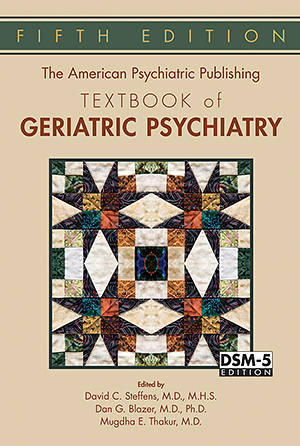Chapter 14.Sexuality and Aging
Sections
Excerpt
People are living longer and healthier lives, and many expect sexuality to continue to play an important role. As a result, sexual issues and disorders are an important part of assessment and treatment by the geriatric psychiatrist, in both outpatient and long-term-care settings. The idea of sexuality in late life, once commonly regarded with denial, humor, or even disgust, too often led clinicians to view sexual dysfunction as a normal and untreatable part of aging. Such distorted attitudes have changed widely, however, starting with the sexual and feminist revolutions in the 1960s and 1970s and buoyed by the widespread use of hormone replacement therapy and then the advent of oral erectogenic agents for erectile dysfunction. This widespread openness toward late-life sexuality coupled with reliable treatments for sexual dysfunction has made sexuality a more common and comfortable topic of conversation among aged individuals and their clinicians, and can now ensure the persistence of enjoyable sexual function in later years. In addition, the destigmatization of sexual dysfunction has no doubt encouraged many older couples to seek treatment who otherwise might have suffered in silence and shame.
Access content
To read the fulltext, please use one of the options below to sign in or purchase access.- Personal login
- Institutional Login
- Sign in via OpenAthens
- Register for access
-
Please login/register if you wish to pair your device and check access availability.
Not a subscriber?
PsychiatryOnline subscription options offer access to the DSM-5 library, books, journals, CME, and patient resources. This all-in-one virtual library provides psychiatrists and mental health professionals with key resources for diagnosis, treatment, research, and professional development.
Need more help? PsychiatryOnline Customer Service may be reached by emailing [email protected] or by calling 800-368-5777 (in the U.S.) or 703-907-7322 (outside the U.S.).



